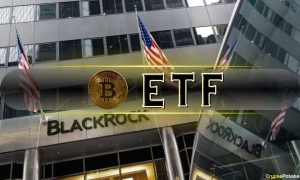Digital assets and even the underlying blockchain technology have long come under fire from critics for lacking in utility and not having enough practical, real-world applications. Over recent years, as institutional interest has picked up, the criticism has become less vocal. Nevertheless, it’s fair to say that crypto has existed in a bubble for most of its existence. Even the most successful segments, like DeFi and GameFi, have remained relatively disconnected from the real world.
But at this point in 2024, there are strong signals that things are finally changing. In the first weeks of 2024 alone, there have been significant developments involving Visa, Blocktrade, and Solana that demonstrate real-world utility in action for Web3 and digital assets.
Visa’s Web3 Loyalty Launch
Visa seriously leveled up its Web3 commitment in the new year, launching a new, immersive Web3 loyalty engagement platform for brands. Using the platform, a brand can offer their customers a customized digital wallet that enables them to engage with virtual and real-life experiences such as AR drops and treasure hunts, earn digital collectibles and interoperable rewards, and discover new ways to use their accrued loyalty balances.
The move is designed to meet the changing digital needs of modern consumers, who Visa says demand more of brands in return for their loyalty. The platform marks a shift from the points-based systems that have characterized Web2 loyalty in favor of digital collectibles, which customers can interact with via AR or on maps. Visa is aiming for broad adoption with a self-service, no-code solution, eliminating the need for brands to onboard Web3 developers.
The payments giant has been a trailblazer in Web3 adoption. In September last year, it announced it would introduce settlement of the USDC stablecoin on the Solana blockchain in a move to increase the speed of cross-border settlements on its network.
Blocktrade Solution Finally Unblocks Crypto Payments
Crypto’s utility as a real-world medium of exchange has always been limited. This is thanks in part to its notoriously high volatility, which is a deterrent for retailers wanting to avoid the risk that the value of their payment will be diminished before they can convert it to fiat. However, asset marketplace and trading platform Blocktrade has just announced a major release that removes this critical barrier to adoption.
Thanks to a collaboration with technology provider SKAi2, retailers can now accept payments in multiple cryptocurrencies, with an instant conversion to euro that’s deposited straight into their Blocktrade account. Unlike a credit card transaction, which can take several days to clear into a retailers account, this solution is immediate, giving retailers the incentive to encourage customers to pay with crypto.
Consumers can simply download the Blocktrade app and begin using to to pay with over sixty different cryptocurrencies, earning up to 25% cash back for each purchase, creating a compelling incentive to spend their crypto holdings.
Blocktrade is rolling out the solution with its version 4.0 update, and is anticipating that t will be adopted by over 100,000 merchants by the end of 2024.
Solana’s Second Smartphone
With the exception of wallets, Web3 consumer hardware has generally had a hard time gaining traction. However, last year, Solana’s first-generation Saga smartphone became a sudden surprise sellout after the project had announced plans to pull the devices. Thanks to a free allocation of tokens with the device, the crypto community leaped on them, and the weight of demand led prices for new devices to spike.
The success led to more projects launching drops to Saga phones, creating a further supply clamor from would-be buyers. Now, Solana has announced it will release a second version of the in-demand device at a cheaper price point. It will be based on different hardware but offer the same features as the first-gen Saga – a built-in crypto wallet, dApp store, and custom Android operating system.
If Saga’s second launch can sustain the success, it seems likely that we may see further releases of Web3-enabled phones and other consumer hardware.
Adoption and sustainable growth have been long-term goals for many in the crypto space. Forging tangible ties with the real world is one sure-fire way to create value and, in turn, promote adoption.
Disclaimer: This article is provided for informational purposes only. It is not offered or intended to be used as legal, tax, investment, financial, or other advice.




















